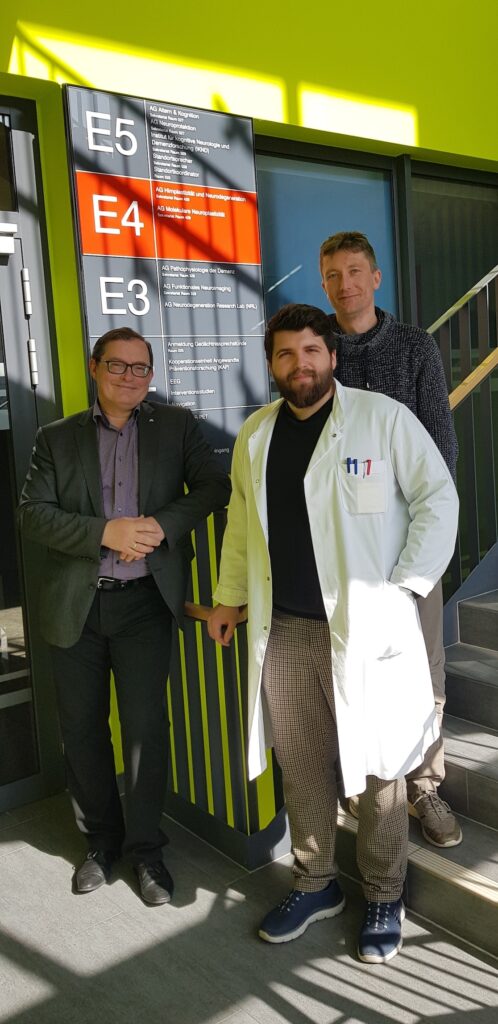Aging is natural and complex physiological process that can be developing without the appearance of diseases. Nevertheless, the healthy aging comes with an increased susceptibility to cognitive decline that is considered a serious health concern. The decline in cognitive function observed in the context of normal brain aging is caused by alterations in brain connectivity and synaptic dysfunction within specific brain regions. One of the processes that can influence synaptic plasticity is mechanotransduction, the physiological process by which cells convert mechanical forces into biochemical signals. Mechanotransduction signaling can control specific biological and cellular processes, such as gene expression and posttranslational modifications. During the first SynAGE funding period, we revealed an upregulated expression of Piezo1 in aged mice and demonstrated that stimulation of Piezo1 with Yoda1 results in impaired long-term potentiation (LTP).

Team A1: Alexander Dityatev (supervisor), Ghenghea Mihail-Sebastian (Ph.D. candidate), Stepan Aleshin (postdoc).
PhD project A1.1 – Ph.D. candidate Mihail-Sebastian Ghenghea
In the context of an increased stiffness caused by the accumulation of extracellular matrix and related alterations in mechanotransduction during aging, this project aims to elucidate the role of the mechanosensitive channel Piezo1. Piezo1 will be targeted specifically in neurons and astrocytes and the resulting effects on synaptic plasticity will be studied by electrophysiology, dendritic spine and calcium imaging, proteomics and transcriptomics. One of the key hypotheses is that activation of calpain upon Piezo1 stimulation causes the cleavage of the cytoskeletal protein spectrin and the C-terminal region of GluN2B subunit of NMDA receptor, driving the remodeling of the (peri-)synaptic zone and internalization of NMDA receptor subunits. Additionally, the activation of integrin adhesome or inflammatory pathways could affect the endocytosis of AMPA receptors. Hence, the expression and redistribution of key components of (peri-)synaptic zone is investigated in this project after manipulations of Piezo1 activity in young and aged animals using confocal and super-resolution microscopy. We hypothesize that Piezo1 hyperactivity in neurons may be important for long-term depression (LTD) and restraining of long-term potentiation (LTP) in aged animals and are testing this hypothesis using electrophysiological recordings.
